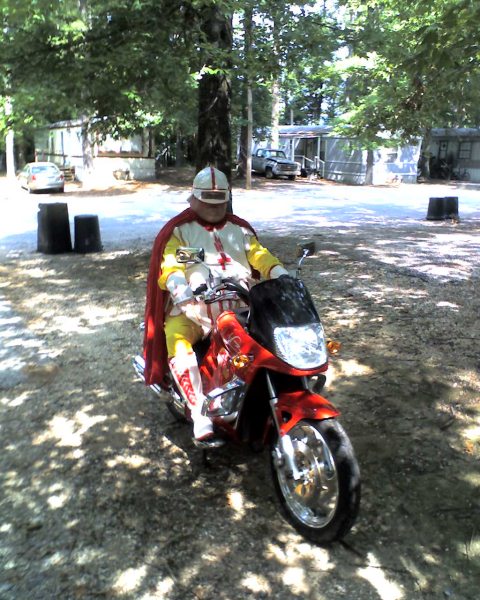Obeying the Law When On Patrol
Many people think that I am being a stick in the mud when I talk about being sure to obey the law whenever they are on patrol. Actually I’m being extremely practical. Here is why. Every time you break a law, you run the risk of drawing negative attention to yourself. Even by walking across people’s lawns, flashing your flashlights down people’s driveways, etc, you draw attention to yourself and run the risk of someone calling in a complaint. It doesn’t matter if you are doing nothing wrong, an officer may be sent to respond. An officer will then, in most likelihood, fill out a Field Interrogation Card (or F.I. Card), and don’t forget Dispatch will also have their own notes on the encounter.
You want every contact with the authorities to be on a positive note. Having an officer fill out an FI Card means that he is making note of something suspicious.. this is not a positive thing. FI Cards are used to make note of “someone of interest” so that if later a criminal complaint is made, the police have a point to begin an investigation. If Dispatchers keep getting calls about someone looking into car windows, and walking over people’s lawns enough times, then police will eventually.. and possibly erroneously (or accurately).. attribute it to guess who.. you. They will then begin to watch you more closely, cutting you less slack each time they have to talk to you. Even officers who have not made contact with you yet will see that a number of FI Cards have been filed on you and will think, “Hmm.. other officers think there is good cause to talk to this person, so there might be reason to think they’re up to something.” Think of it this way, police officers are sharks, and having FI Cards attached to you, and special notes in your file, makes you an appealing lure. They will begin looking at you, and not the waters around you. Being a crime fighter is about helping to alleviate crime conditions, not muddy the waters.
By keeping off people’s lawns, not climbing into trees, not arousing suspicions, and obeying even the most innocuous traffic laws (avoid Jay Walking), you don’t give police a reason to stop you and speak with you. They will not have any past complaints to weigh against you. They will have no reason to be suspicious of you. And most importantly, they will not have a negative image of you when you approach them with information, meaning you will less likely get a brush off, or have an unfair accusation turn and bite you in the behind.
It doesn’t matter what your own personal philosophy on the matter of society’s rules and laws are. If you thumb your nose at them, don’t complain when you suffer the inconvenient consequences of your actions. Drawing heat down on yourself and then loudly complaining abut it is ridiculous. Nobody will listen. You brought it down on yourself.
If you go on patrol, keep your nose clean and pay attention to what you are doing.??










